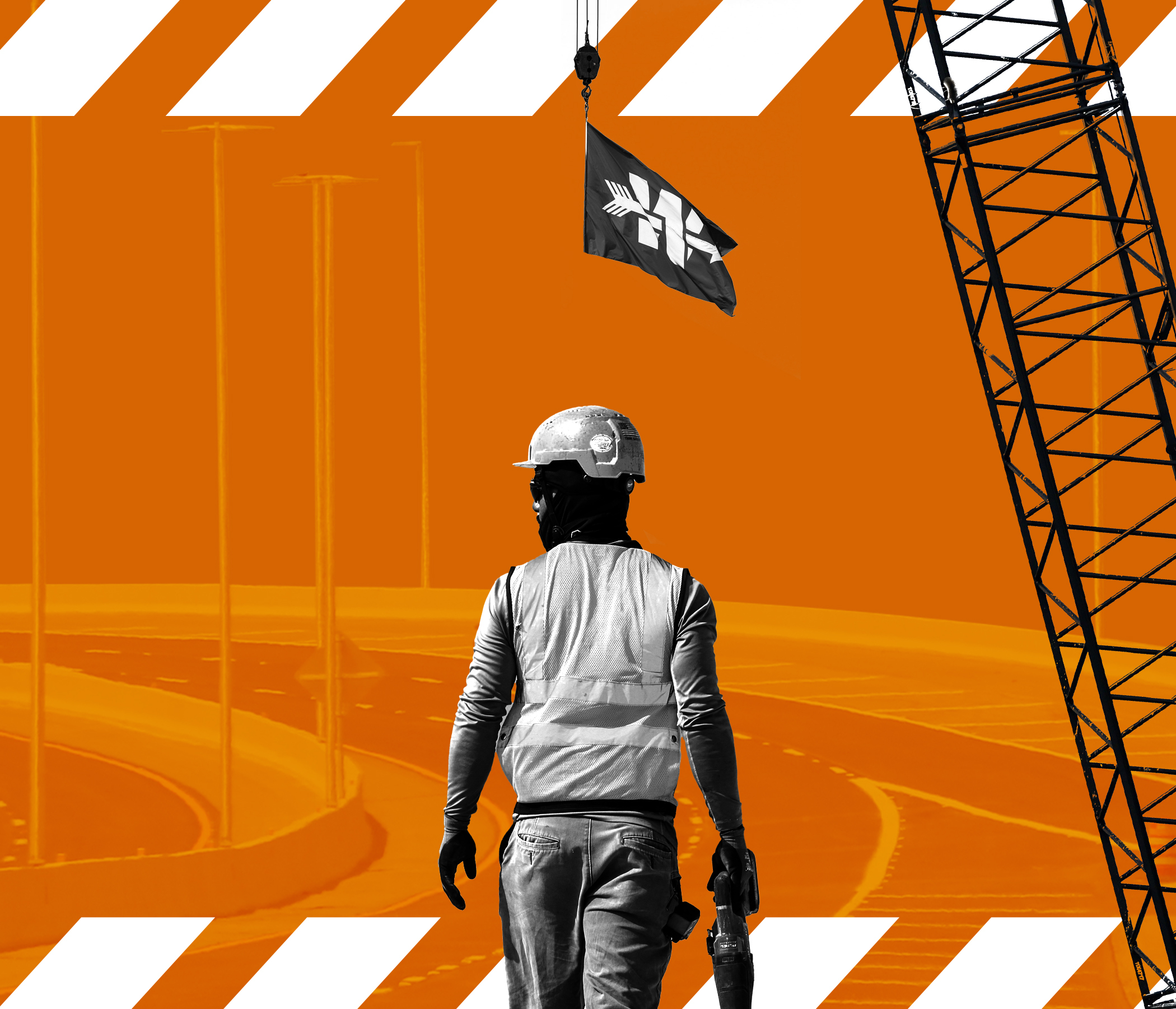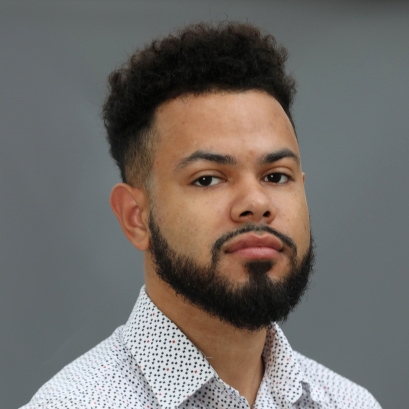Tampa Bay Times wins November Sidney for Exposing Deaths of Undocumented Workers on Florida Road Crews
NEW YORK — Emily L. Mahoney and Langston Taylor of the Tampa Bay Times win the November Sidney Award for “Undocumented Workers Built Florida’s Roads — And Died in the Process,” which reveals how Archer Western, one of the top road contractors for the state of Florida, was allowed to keep working for the state despite a horrific record of deaths and serious injuries among its non-union and heavily undocumented workforce.
Eight workers died between 2016 and 2023. Five experts described the company’s safety record as appalling. Two workers were crushed by a 30,000-pound concrete wall, one drowned, another was crushed by an 18,500-pound concrete pillar hanging from a crane.
A Pinellas County sheriff’s deputy was killed on an Archer Western jobsite after a worker accidentally hit him with heavy machinery. The worker was undocumented and Governor Ron DeSantis turned the tragedy into a political parable about the supposed dangers of undocumented immigrants. The State of Florida has awarded Archer Western and its partners more than $1 billion during the DeSantis administration. These lucrative payments have continued despite the state knowing about the company’s hiring practices and its safety record.
“Florida officials know that Archer Western has a terrible safety record and a pattern of hiring easily-exploitable undocumented workers,” said Sidney judge Lindsay Beyerstein. “Despite this, Florida continues to give this firm major state highway contracts.”
Emily L. Mahoney is the energy reporter for the Tampa Bay Times, where she also previously served as the senior political reporter and a statehouse correspondent in Tallahassee. Her work focuses on the intersection of corporate interests and state government, including utility companies’ efforts to hike Florida electric bills and state plans to trade public nature preserves to private developers.
Langston Taylor is the data editor for the Tampa Bay Times, where he leads the Data Hub. He also serves as a vice president of print for the Tampa Bay Association of Black Journalists and has contributed to award-winning projects including the “Rising Threat” series on flood risk and the “Deadly Dose” series on kratom.

Backstory
Q: How did you find out about Archer Western’s terrible safety record?
In 2022, a sheriff’s deputy died in a shocking accident on an Archer Western construction project in the Tampa Bay area. While the deputy was helping to protect the worksite from nighttime traffic, a worker, who was undocumented, unintentionally hit and killed him with heavy machinery. The incident raised questions about how someone without legal status could be hired by a state contractor and whether he had been sufficiently trained.
Our law enforcement reporters covered every angle of that case as the worker — and one of his coworkers, who was also undocumented — was criminally charged. But we couldn’t shake the sense that there was more to the story. We started looking at OSHA records and quickly found a number of deaths in Florida that seemed unusual. When we called workplace safety experts, they were astounded that a company with eight deaths in as many years could qualify for state contracts at all.
Q: Give us a 35,000-foot view of your investigative strategy for this complex investigation?
Public records are at the core of this investigation. The way we were able to prove that Archer Western had a history of hiring vulnerable immigrants was by cross-referencing the documents created when employees died on the job. With workers often using fake IDs, names listed on initial police reports were often wrong. To get around this, we gathered as much paperwork as possible to try to discover their real identities: autopsy reports, workplace inspections, court filings if their families filed lawsuits. Once we had basic identifying information, we could request their immigration files from the federal government. A lot of phone calls, door-knocks, Facebook messages and hand-written letters to families of the deceased also helped fill in some gaps.
Proving that Archer Western’s safety record stood out among the rest of the construction industry was a different matter. We looked closely at death statistics and asked experts with direct knowledge of the data to check our work. After slicing the numbers as many ways as we could, it became clear that even in a dangerous industry, Archer Western’s record was abnormal.
Q: How does the workers’ immigration status play into the high risks they face on the job?
This is a really important question. Because in some ways, this investigation can seem like it’s about two separate concepts: how undocumented workers have helped build roads for a state government whose leaders have denounced people like them, and how a road-building company had such a troubling safety record. But experts told us that these two issues are intertwined.
Workers without legal status are at a higher risk of getting hurt on the job, in part because they take riskier jobs and work longer hours. A former OSHA area director told us migrant workers may not have high expectations for protective equipment if they come from countries where that isn’t the norm. And undocumented employees can be reluctant to report problems, or even to go to the hospital if they get hurt, leading to underreporting of injuries to federal regulators.
Q: Has the State of Florida violated any laws or policies by continuing to use Archer Western despite its history of accidents and hiring undocumented workers?
That’s a complicated question. Of course, people who are not legally in the United States do not have authorization to work here. After the deputy’s death revealed the extent of Archer Western’s use of undocumented labor, the federal government launched an investigation into its hiring practices. At least 19 former construction workers have been charged with crimes related to using Social Security numbers that did not belong to them.
There’s no indication that state officials are being investigated as part of that probe. In fact, a state law enforcement agency is helping the federal government dig into the company.
The state of Florida does, however, have discretion over which companies it hires for these multi-million-dollar road projects and has the ability to disqualify contractors that allow unsafe work conditions. It has not disqualified Archer Western. Documents showed that state officials were aware of at least two of these deaths and even alleged in court that the company’s negligence was to blame for one of them. All of the deaths were documented by OSHA in an easily searchable public database. Still, the state has continued to hire Archer Western.
Q: Did anything unexpected happen in the course of reporting this story?
We did hit some unusual roadblocks.
For example, we sent a letter in Spanish to a former Archer Western worker who’s currently in federal prison for using someone else’s Social Security number. Eventually he agreed to sit down for a full interview, which presented a huge opportunity for us to learn more about what it was like to work there — from someone who couldn’t face immediate repercussions for speaking out. He was already in prison, and already slated to be deported when his sentence is completed.
But there was just one problem: the federal prison would not accommodate an interview. It’s not unusual for a journalist to come into a prison to interview someone. Still, no matter how many times we persisted, prison officials refused to let us in. We never got an interview or an explanation.
Q: What impact has your story had so far?
A bipartisan group of federal and state lawmakers have called for change in the way the state handles this company. The secretary of the Florida Department of Transportation was also recently asked by a lawmaker during a hearing to explain the department’s actions.
It’s unclear where those calls for accountability will lead. But we’ll continue to follow this story — even if some politicians would prefer not to talk about it.



